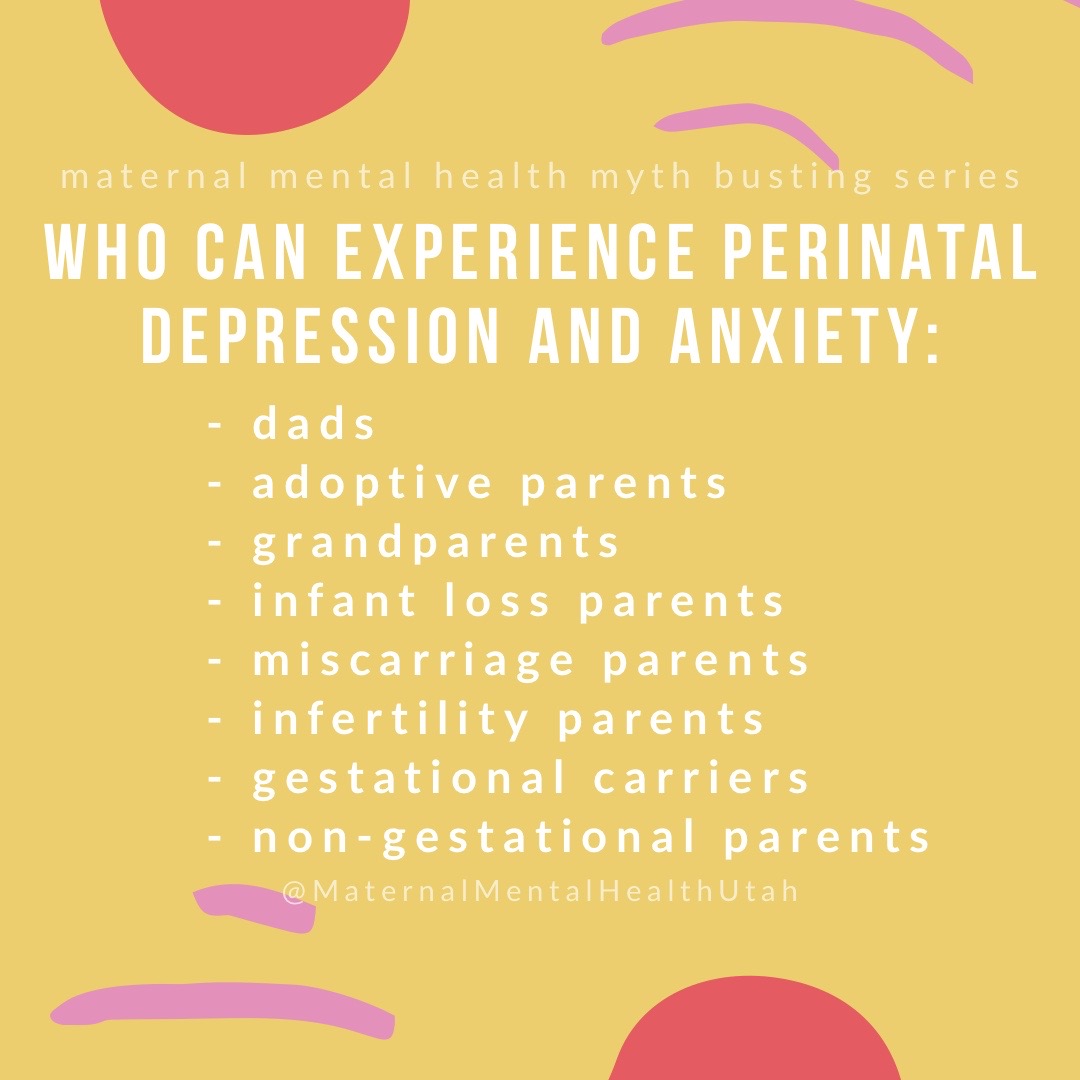Maternal Mental Health
What is Maternal Mental Health?
Depression and anxiety are the most common complication of childbirth. In fact, one in eight Utah women, according to the Pregnancy Risk Assessment Monitoring System (PRAMS), are affected by postpartum depression, and one in three Utah women will experience either depression during pregnancy, anxiety during pregnancy, or postpartum depression.
Maternal mental health includes much more than just postpartum depression and can occur anytime during pregnancy, through one year postpartum (and beyond!). In addition to depression, maternal mental health includes anxiety, bipolar disorder, post-traumatic stress disorder (PTSD), obsessive-compulsive disorder (OCD), and psychosis. These mood disorders are different from the “baby blues,” which around 80% of women experience. If you are not feeling like yourself two or three weeks after having a baby or find it difficult to care for yourself or your infant, it can be something more than the baby blues.
What are the Symptoms and Risk Factors?
Many moms struggle with symptoms they may not recognize as a problem, such as too much or too little sleep, avoiding family or friends, irritability, anger, lack of enjoyment in things they used to love, scary thoughts they are afraid of, thinking someone else would be a better mom or wishing they could disappear.
Although any woman (or man!) can experience postpartum depression, people who have the following are at a higher risk:
- A complicated pregnancy, or health issues during pregnancy
- A premature birth
- Are single parents
- Had postpartum depression or anxiety with a previous child
- Had a mom or sister with postpartum depression or other perinatal mood disorder
- A complicated or traumatic birth
- Birth or postpartum expectations not met (not being able to breastfeed, etc.)
- Mixed feelings about the pregnancy, whether it was planned or unplanned
- Experiences of racism and discrimination

What Helps?
Depression and mood disorders are treatable but will not likely go away on their own. The help you need might be as simple as focusing on sleep, nutrition, more water, or social support.
Below, you can download a free resource to help with maternal mental health that can be printed or kept on your phone. It can be found in the following languages:
You might also benefit from counseling, therapy, medication, or a combination. To find a local resource in your area, visit: maternalmentalhealth.utah.gov opens in a new tab.
If you are not feeling like yourself, reach out for help. You deserve to be well.
Additional Resources:
- Maternal mental health resources throughout Utah: https://maternalmentalhealth.utah.gov opens in a new tab
- National Maternal Mental Health Hotline provides 24/7, free, confidential support before, during, and after pregnancy – Call or text 1-833-TLC-MAMA (1-833-852-6262).
- The Utah Women and Newborns Quality Collaborative to see how they’re working with providers statewide on universal screening and referral recommendations: https://mihp.utah.gov/uwnqc/maternal-mental-health opens in a new tab
- Follow us on social media for more resources and information on maternal mental health: Instagram opens in a new tab and Facebook opens in a new tab
- Postpartum Support International Utah’s chapter: https://www.psiutah.org/ opens in a new tab
- Visit The Emily Effect to find stories of brave women just like you: https://theemilyeffect.org/ opens in a new tab
- Postpartum Support International for more resources for moms and professionals, including training: https://www.postpartum.net/ opens in a new tab
- Call: 1-800-944-4773 to talk to someone who has gone through this (#1 for Spanish, #2 for English)




